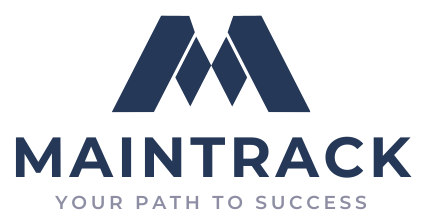For decades, entrepreneurship was often associated with endless grind, long hours, and sacrifice as the price of success. But Gen Z—those born between 1997 and 2012—are rewriting the rules. They are rejecting traditional “hustle culture” in favor of smarter, more strategic approaches to building wealth and influence. Armed with technology, access to global networks, and a fresh perspective on work-life balance, Gen Z entrepreneurs are proving that you can achieve success without burning out.
This article explores how Gen Z is changing the business landscape, the tools they’re using, and why investors should pay close attention.
A Generation That Works Smarter, Not Harder
Gen Z grew up surrounded by technology, social media, and instant access to information. As a result, they are more comfortable experimenting with unconventional business models and tools that older generations may view as “risky.” But for Gen Z, flexibility, mental health, and freedom are not luxuries—they’re priorities.
A Deloitte Global 2024 survey found that 46% of Gen Z workers say work-life balance is their top priority when choosing an employer, while entrepreneurship is often seen as a way to secure that balance rather than overwork themselves. This generation is also highly purpose-driven, wanting their work to align with their values. Businesses that ignore these priorities will struggle to attract or retain this new wave of leaders.
New Business Models for a Digital Era
Instead of pouring years of time and money into traditional startups, many Gen Z entrepreneurs are embracing business models that provide faster scalability with lower overhead. A prime example is revshare affiliate marketing, where affiliates earn commissions based on the revenue they generate rather than one-time payouts.
Affiliate and revenue-sharing models are attractive because they:
- Require minimal upfront capital.
- Offer flexible income streams that scale with performance.
- Allow young entrepreneurs to build income while learning.
Combined with AI-driven automation tools, these models empower Gen Z to grow their businesses while maintaining control over their time.
Remote-First Work Is the Norm
Unlike previous generations, Gen Z entrepreneurs see remote work not as a perk, but as a default. They’re starting companies that are global from day one, hiring freelancers and teams across continents. This global-first approach enables them to tap into talent pools that are both more diverse and often more cost-effective.
Remote-first operations also support Gen Z’s desire for flexibility. With many working from coffee shops, co-working spaces, or even traveling full-time, they can run businesses from virtually anywhere. According to a 2023 Owl Labs report, 62% of workers aged 18–34 prefer fully remote or hybrid work, reflecting how deeply this shift resonates with Gen Z founders.
Case Studies: Young Founders Leading the Way
The success stories of Gen Z entrepreneurs are proof that these approaches work:
- Emma Chamberlain: A YouTuber turned coffee brand founder, Emma leveraged her audience and online presence to build Chamberlain Coffee into a recognized lifestyle brand without following a traditional retail route.
- Ben Francis (Gymshark): Although Francis started Gymshark as a teenager, the company grew rapidly through influencer marketing, remote teams, and online distribution—practices Gen Z has embraced fully.
- Ryan Trahan: Another Gen Z creator who uses content and affiliate marketing strategies to generate massive revenue, showing how young entrepreneurs monetize creativity over traditional business models.
These stories demonstrate that Gen Z doesn’t just adapt to new trends; they set them.
Why Investors Should Take Notice
Venture capitalists and angel investors are starting to shift their focus to accommodate Gen Z’s entrepreneurial mindset. These young founders often require less capital upfront but bring high creativity and agility to the table. They’re building lean, profitable businesses by leveraging AI, digital platforms, and revenue-sharing partnerships.
Investors looking for growth should consider:
- Supporting businesses that are digital-first and remote-friendly.
- Funding creators and influencers building product ecosystems.
- Offering mentorship in addition to capital to appeal to younger entrepreneurs.
The result is a generation of founders who don’t just aim for unicorn valuations but also sustainable, balanced growth.
The Future of Business in Gen Z’s Hands
Gen Z entrepreneurs are proof that hustle doesn’t have to mean burnout. They are redefining success through smarter systems, scalable revenue models, and global-first operations. This approach not only benefits their businesses but also sets a new cultural standard for future generations.
With the rise of tools like AI, affiliate marketing systems, and creator-driven platforms, the next decade of entrepreneurship will likely look nothing like the grind-heavy model of the past. Instead, expect a future where work is meaningful, scalable, and sustainable.


